On the front lines
Nurses share experiences during coronavirus epidemic
Grace Ritchey follows the new procedures due to the coronavirus. All medical workers have new protocols to prevent exposure to the virus.
Right now we’re all living in a big moment in history. The biggest pandemic we have worried about since 1918 was the influenza pandemic taking the title of being the most severe; but, in recent history. Today a new disease the coronavirus has left hundreds of thousands of people around the world infected.
COVID-19 is a new virus that causes respiratory illness in people and is extremely contagious. Both my father and grandmother are around people who have been tested for the virus; personally, it scares me every time they go to work that they might get it or bring home to my family.
“Face masks are now required at all times for all employees and visitors whenever entering the hospital. Personal protective equipment including the use of a head cover, eye shield, face masks and disposable gowns, gloves are used for all patients considered to be infected with COVID-19. The guidelines for the treatment of those infected with COVID-19 are constantly changing,” UPMC Registered Nurse Mark Cowfer said.
With the coronavirus outbreak hospitals and doctors’ offices have established new protocols and precautions.
“The testing for COVID-19 occurs when a patient reports one of the following symptoms: fever of unknown cause, persistent cough, sudden development of shortness of breath or known exposure to someone who has tested positive for COVID- 19. Testing for COVID 19 has increased as testing kits have become more available. A couple of weeks ago these tests weren’t readily available; they would only test for COVID-19 if three of the four criteria were met,” Cowfer said.
Scientists believe that Coronavirus may not make children as sick as adults. However, children can still become infected with the virus, so it’s important to stay safe. Information about the virus is learned daily and changes.
“Anyone admitted for suspected COVID-19 is automatically isolated in a private negative pressurized room with no visitors allowed at all including family and friends to eliminate any possible chances of exposure to these visitors and ultimately to the community. This remains in effect until a COVID- 19 test comes back either negative or clear,” Cowfer said.
During the stay at home order and quarantine for some citizens, PA residents are required to stay at home unless participating in certain activities.
“At this time of this interview the hospital census was near an all-time low, a large part of this is due to the cancellation of all elective testing procedures and surgeries also with the new stay at home and stay safe procedure a lot of people have not been going out. This includes the hospital and emergency department. As COVID- 19 continues to spread, we as health care personnel expect these numbers to rapidly worsen. We feel it is the calm before the storm,” Cowfer said.
As the virus progresses health care workers get more information and new protocols to prevent exposure.
“Extra vigilant hand washing and use of personal protective equipment. (I) may start to bring a change of clothes, to change into at the end of the shift,” Cowfer said.
According to the Pennsylvania Department of Health as of this point, the recovery rate for COVID-19 in the United States is 8,878 recovered cases.
“At the time of the interview, the hospital has all the necessary equipment/supplies. Fear is the continued spread and possible surge in COVID-19 cases that these suppliers will be sparse,” Cowfer said.
According to the Centers for Disease Control and Prevention, even if a person tests negative after exposure doesn’t mean they can’t test positive later.
“All facilities follow the same guidelines: you fill out a form, then they take your temperature, then you do your visits and they recheck your temperature when you leave. The first thing I have to do in the morning is answer questions if you have any symptoms and take my temperature and send it to the office,” certified nurse assistant for Aseracare hospice Grace Ritchey said.
Their number of patients that tested positive is 5,805 in the state of Pennsylvania and rising daily.
“To be honest I pray every morning for protection, and I worry that I may be the next one,” Ritchey said.
Tom Wolf has put all 67 counties in Pennsylvania under a stay at home order through April 30.
“One of my patients actually showed all the signs of the virus, so I had to notify the office then follow the guidelines: take my temperature twice a day and watch for symptoms, thank heavens she was negative,” Ritchey said.
A person can test positive for the coronavirus and not show any signs of the virus; it can take up to 14 days to start showing.

Hi, my name is Maddie Cowfer. I am a freshman in high school, and this is my first year on Livewire. One of my favorite things to do is run; I am on the...
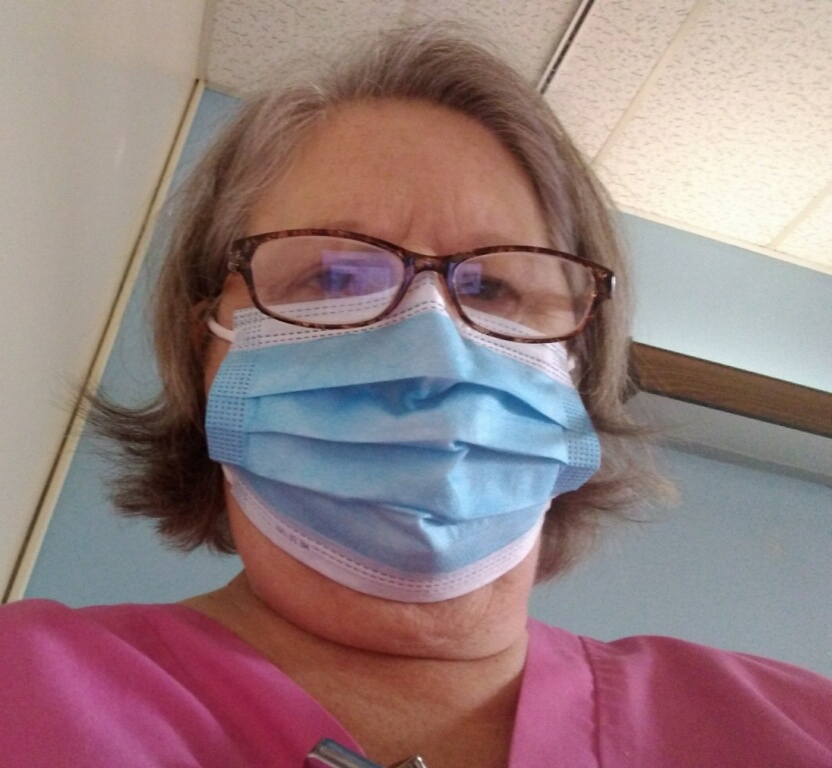

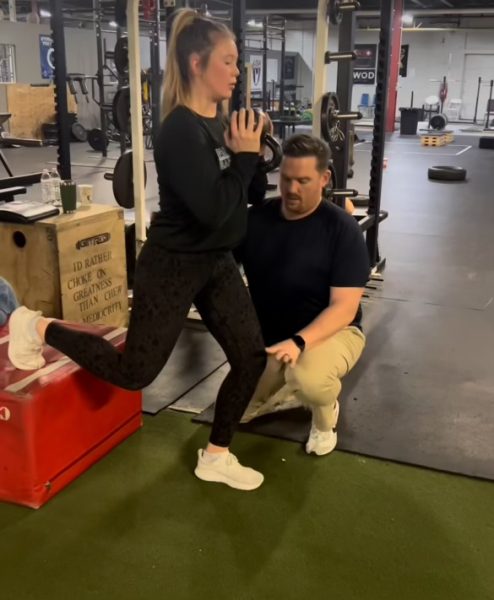



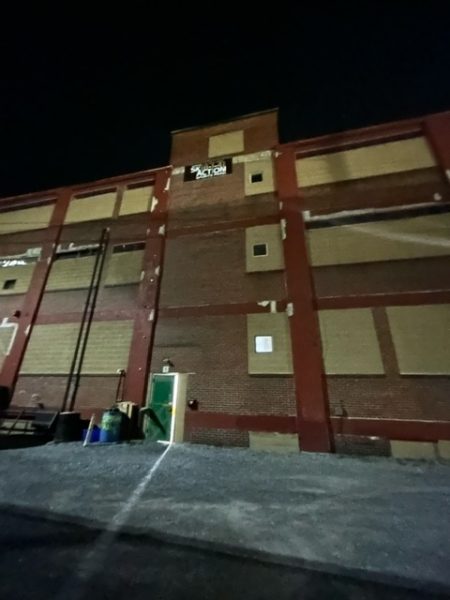

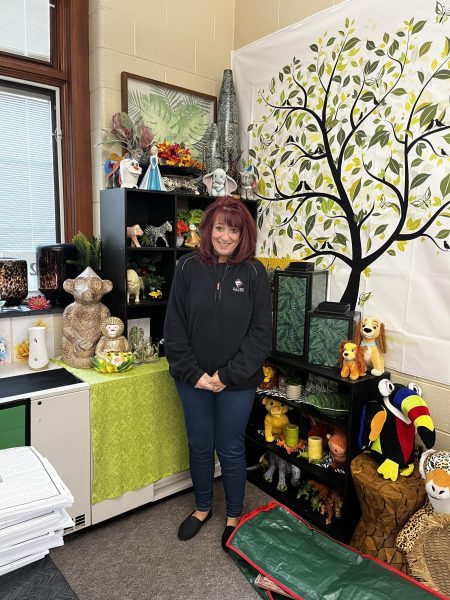

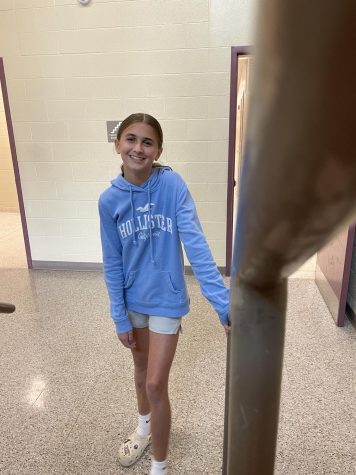
Lori Stangl • Apr 6, 2020 at 8:41 am
Thank you for this excellent article. I really enjoyed the information about our community. Great Reporting!!
Dottie Murray • Apr 5, 2020 at 9:27 pm
Keep writing Maddie, you do a Great job! Love the article!
Aunt Jemm • Apr 4, 2020 at 1:58 pm
Awesome article Maddie!!! You are growing up to be an intelligent young lady! Very proud of you & love ya!!
Robert Cowfer • Apr 4, 2020 at 11:09 am
Maddie, Thank you for all the important and helpful information you have provided. It’s great you have first hand knowledge from those in the health field. Love You!
Stephanie Cowfer • Apr 3, 2020 at 7:27 pm
Wonderful article Maddie!So proud of you for doing a great job. It is nice to read an article from your prospective. Keep up the good work.
Gracie Cowfer • Apr 3, 2020 at 7:03 pm
Love it!!!!!!! Amazing job of informing us the true story, our local health care workers ho through every day.
Gracie Cowfer • Apr 3, 2020 at 6:58 pm
Love it!!!!! Very informative article,Thank you for telling the story that our local nurses,go through every day.
Grace Ritchey • Apr 3, 2020 at 12:02 pm
Another amazing article Maddie. It’s so nice to see you grow into an awesome reporter.
Mrs. Dotty Helsel • Apr 3, 2020 at 11:36 am
What an informative article! It is nice to know that we have wonderful nurses and medical personnel in our hospitals that are ready to take on this virus. Prayers for safety and protection for all of our medical community as they are on the front lines everyday to keep us protected.
Lori Loucks • Apr 3, 2020 at 11:20 am
Great article, Maddie! I really like that your article has a local tie, since most of what we read is about more national information. Keep it up!
Lily • Apr 3, 2020 at 10:30 am
Very Interesting!!! Good Job Madison!!